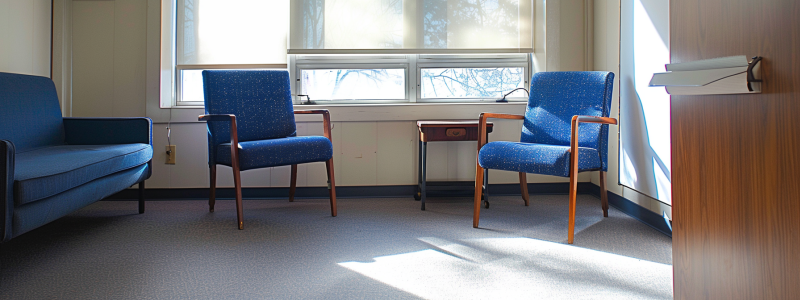Being an adolescent comes with many challenges, as I’m sure we all remember. Shifting hormones, new roles, friendships, self-esteem, and life changes cause an increased risk of depression and other mental health issues. Puberty is a crucial time in development but also a time when adolescents begin to experiment and engage in risk-taking behaviors. As a therapist having previously worked in a residential facility for eating disorders, I observed that depression during puberty was multifaceted. Social, physical, and environmental factors played a role in various mental health presentations. Many adolescents present with depression due to childhood trauma, negative social circles, substance use, risk-taking, or simply poor self-esteem.
Emotional Regulation and Coping Skills
Many times, puberty comes with maturation issues. The idea of growing up and becoming an adult comes with an increased knowledge of responsibility and change. These thoughts can be scary, and teens may have trouble managing these emotions. Emotional regulation and learning coping skills to manage negative emotions have been critical areas of work with adolescents experiencing depressive symptoms during puberty.
In cognitive-behavioral therapy (CBT), we discuss core beliefs, automatic negative thinking, and reframing thoughts. How do we accomplish taking negative thoughts and turning them around to see the brighter picture? Reframe, reframe, reframe. By understanding where these thoughts are coming from and why we believe each thought, we can transform the way we think about them by seeing them in a nonjudgemental, more helpful way.
Example
Jane is walking down the hallway and sees Maria and waves, but Maria doesn’t acknowledge Jane. When Jane goes home, she feels like Maria no longer likes her, but what she doesn’t know is that Maria has just failed her math exam and is very angry. She is dissociated and not paying attention to much around her and misses Jane’s social cue. Jane is now in the mindset that Maria doesn’t like her anymore. By reframing the thought, Jane could put herself in a position without even knowing Maria’s stance and think, maybe Maria was just having a bad day, or maybe she didn’t see me. This simple reframe can ease any negative feelings that Jane may be experiencing.

Gender Differences in Puberty-Related Depression
Gender may also be a factor when dealing with depression in puberty, as there are important differences.
- Girls: Many adolescent girls have trouble wrapping their minds around becoming women. Growing breasts, body hair, and widening hips can cause body image issues and body dysmorphia. These poor body image issues can lead to an increased risk of developing depressive symptoms.
- Boys: For adolescent boys, puberty can be a time when increased testosterone can cause more aggressive behavior, sexual activity, and role confusion. Depressive symptoms with body image may also play a role if later onset puberty exists. Therapeutically, when an adolescent comes in with poor body image, it is important to help them see their body in a neutral stance.
Addressing Hygiene and Self-Care
Puberty also comes with increased hygiene protocols which may be troublesome for an adolescent dealing with depression. For previous clients that struggled with basic hygiene, collaborating on a behavior plan was beneficial to ensure the teen would commit to needs. My experience with eating disorders, body dysmorphia, and poor body image led to many teens struggling with basic needs due to the challenges of facing mirrors or seeing themselves in any reflection.
Self-Care Strategies
- Physical Self-Care: Maintaining proper nutrition, sleep hygiene, movement, and staying hydrated.
- Emotional Self-Care: Journaling, listening to music, grounding exercises, practicing positive affirmations, and self-reflection.
- Cognitive Self-Care: Being aware of inner judgment, self-talk, and participation in family time, therapy, and creative expression.
Social Changes and Peer Pressure
Depression in puberty can also come from stressful social changes. Fitting in with certain groups, self-worth based on others’ opinions, invalidation, and changes in values can all contribute to depression.
Intervention Example
An activity I have worked on with adolescents dealing with depression has been “the masks we wear”. On a sheet of paper with the outline of a mask, draw or write how you portray yourself to the world, and on the other side of the mask, write internal feelings. By identifying the differences, it is important to discuss the reasons for any incongruence.
Another intervention I have used comes from Acceptance and Commitment Therapy (ACT) and a metaphor called “The Unwelcome Party Guest”. This intervention involves adolescents understanding that our self-limiting beliefs only have power if we let them bother us. ACT encourages us to accept unwanted feelings to better experience our lives, values, and what is important to us.

Risk-Taking and Substance Use
Depression in puberty may also be caused by increased risk-taking and experimentation with drugs and alcohol. Despite efforts to protect teens, exposure to illicit drugs and alcohol is undoubtedly present through social media, advertisements, and movies.
Early Intervention Strategies
Early intervention is important when dealing with substance use. Through the use of motivational interviewing and CBT, skills to replace maladaptive behaviors are essential when a teen is using substances. When teens feel like recovery is “their idea” and they are in control, it encourages autonomy and self-motivation to move forward. It is important for individuals to feel empowered by their own decision-making skills and achievements.
Motivation and Goal-Setting
Motivational Interviewing (MI) can help strengthen an adolescent’s commitment and motivation to reach certain goals. Depression in puberty may be caused by a teen’s lack of motivation. In my experience, working with adolescents’ motivation started with seeing tangible rewards.
As teens seek autonomy and independence, understanding that independence is fueled by trust and finding both internal and external motivators can help in building goals to increase awareness and motivation. Understanding natural consequences that occur when we become unmotivated can help in taking personal accountability and recognizing areas in which we need to push ourselves.
SMART Goals
SMART goals are specific, measurable, achievable, relevant, and time-manageable. Creating both short and long-term goals can help adolescents work toward their overall well-being.

Moving Forward
All in all, the question of whether puberty causes depression is complex, as there are many reasons for symptoms of depression to develop around the time adolescents begin puberty. There are many interventions and techniques to help teens who may be struggling with depression during this time. If you or someone you know is facing these challenges, exploring resources and professional support can make a significant difference. For more information and inspiration on supporting adolescent mental health, contact us at the Adolescent Wellness Academy.
About the Author

Kimberly Carlesi
Therapist











